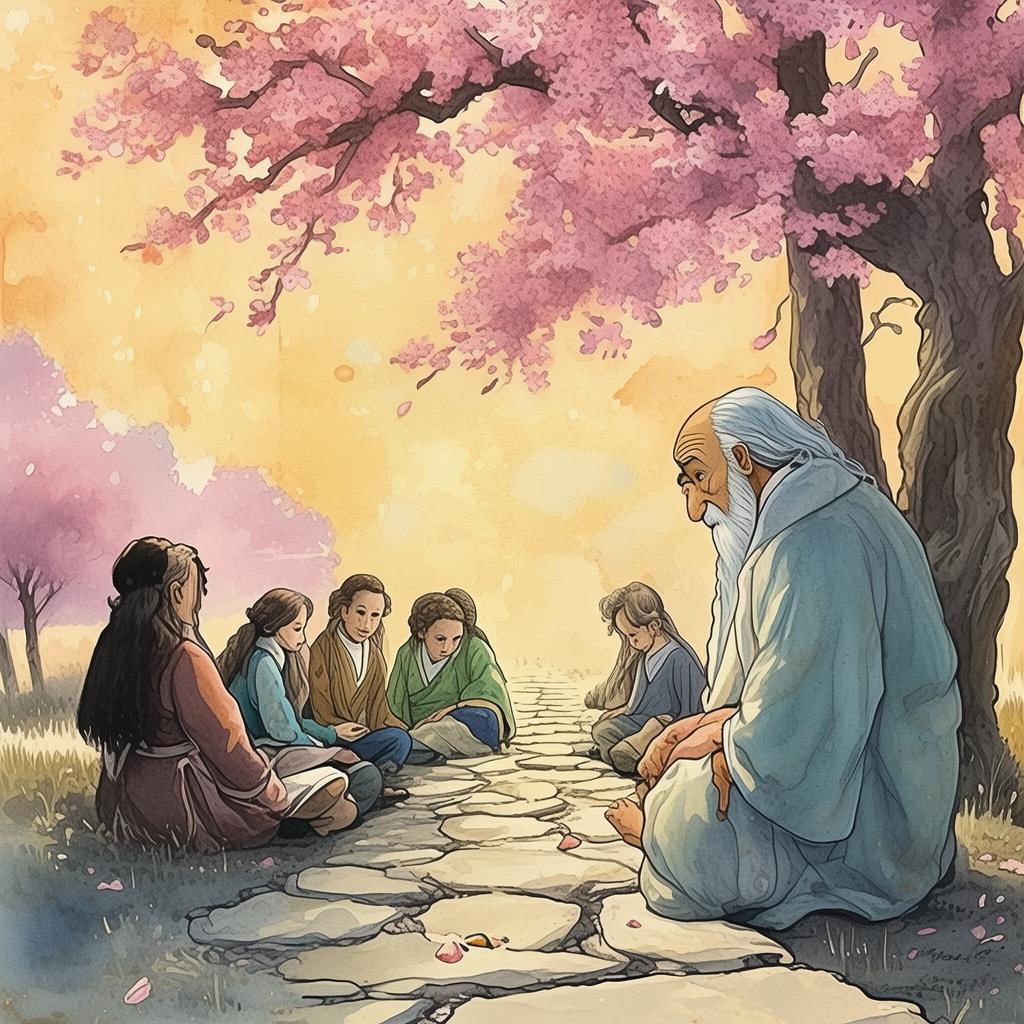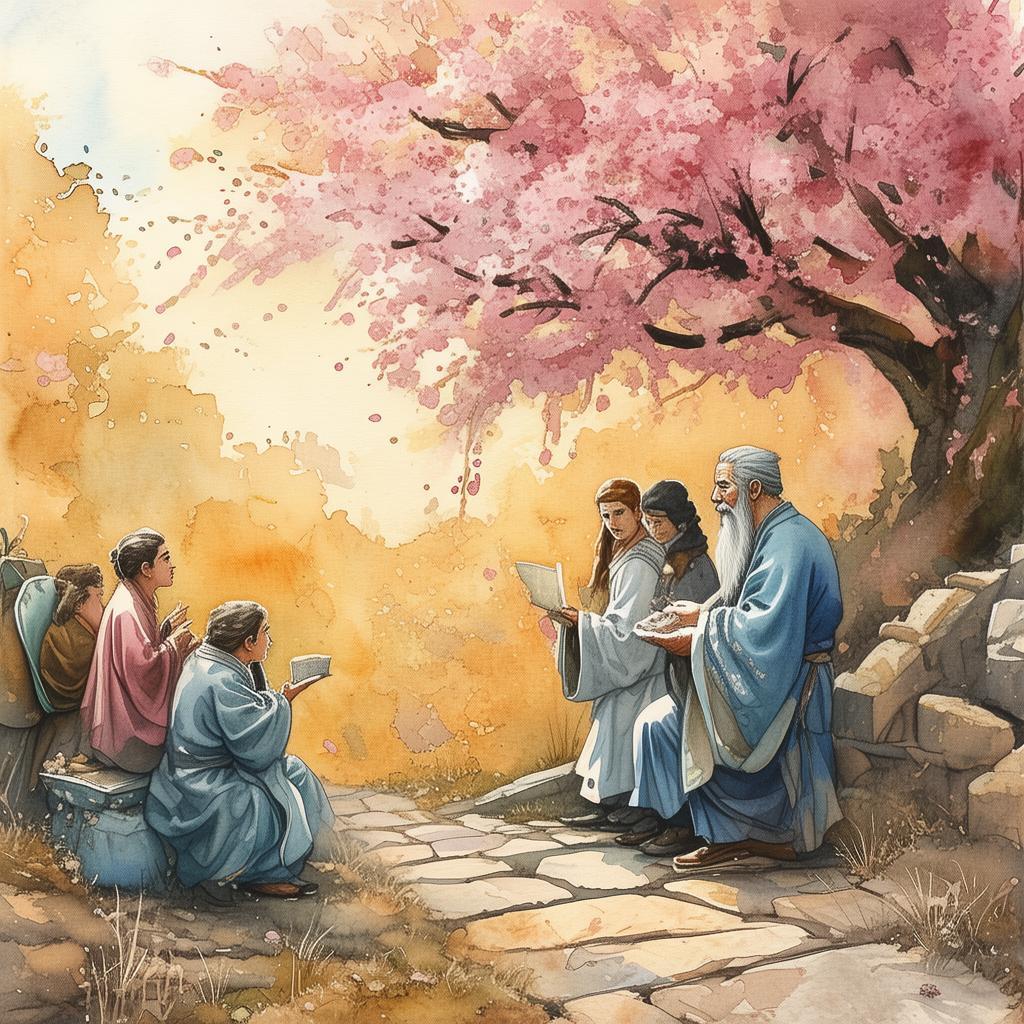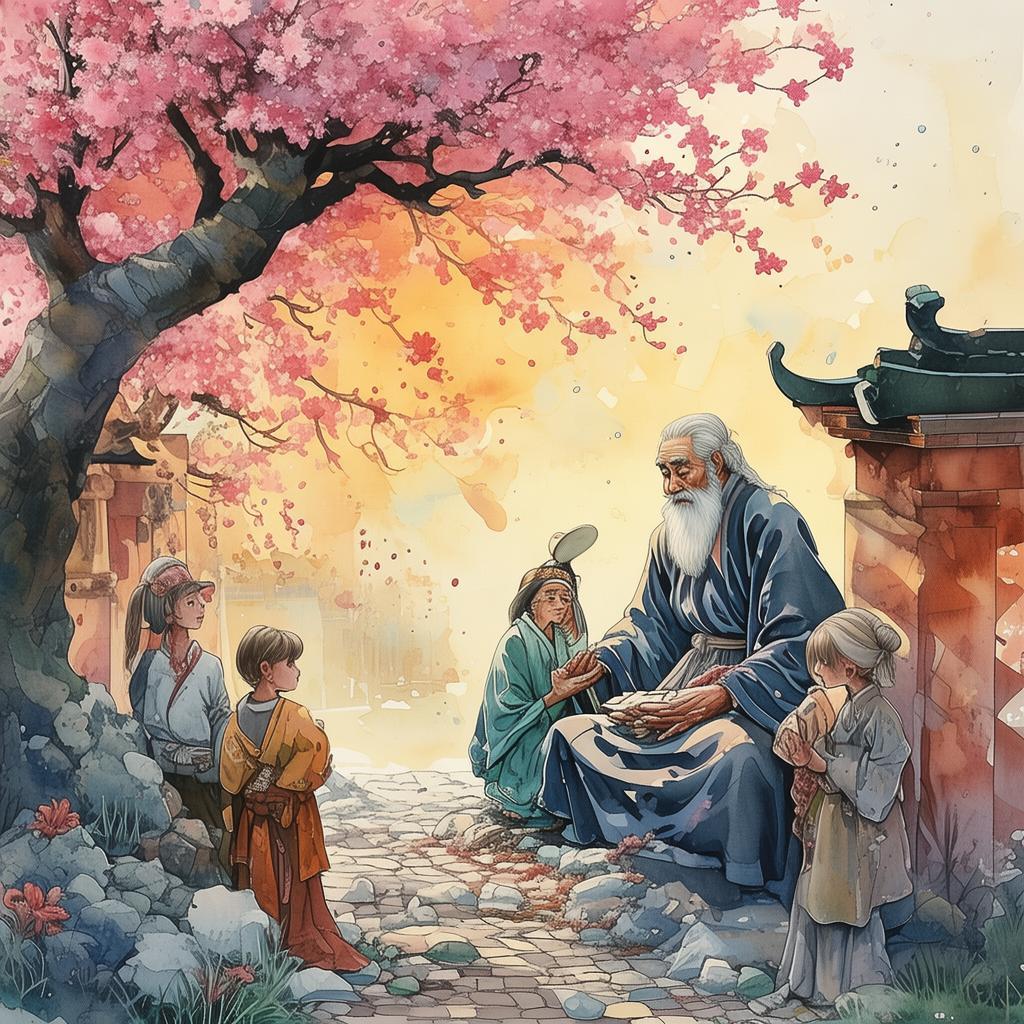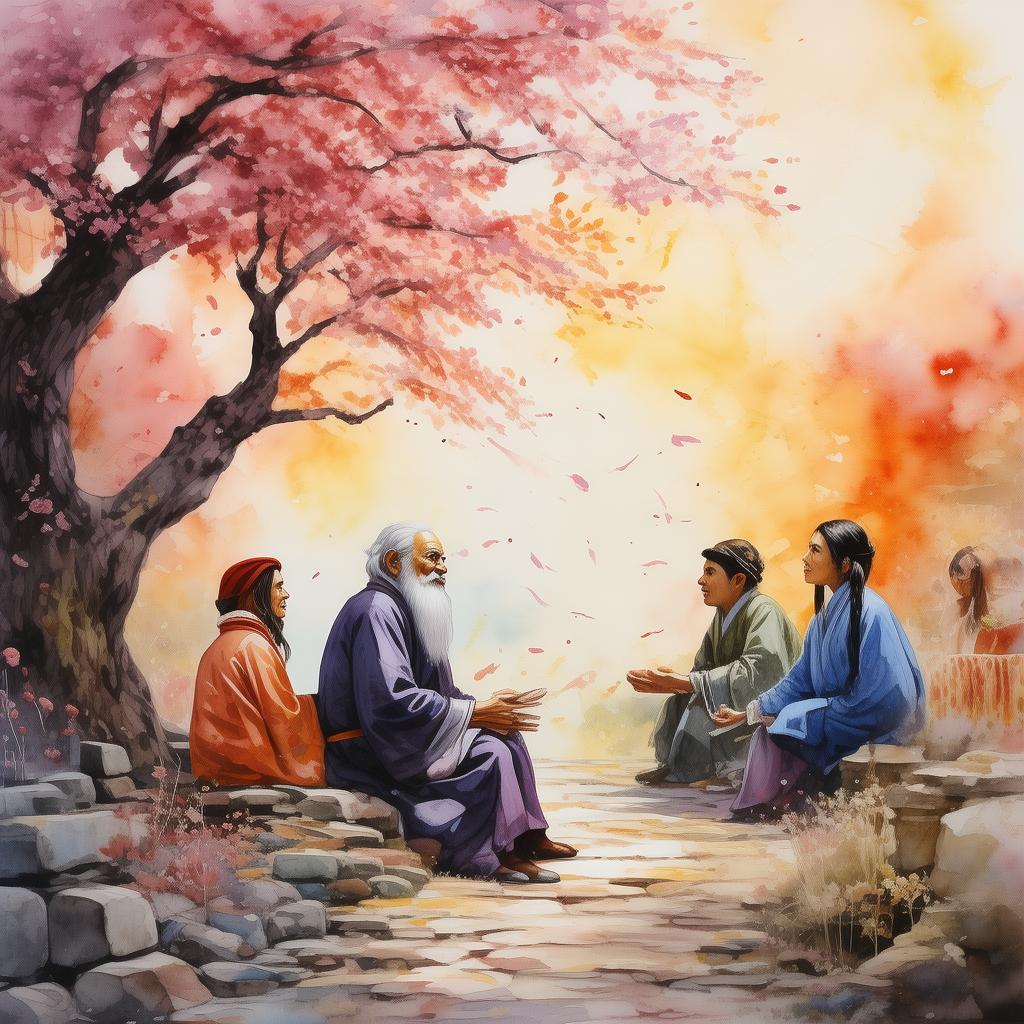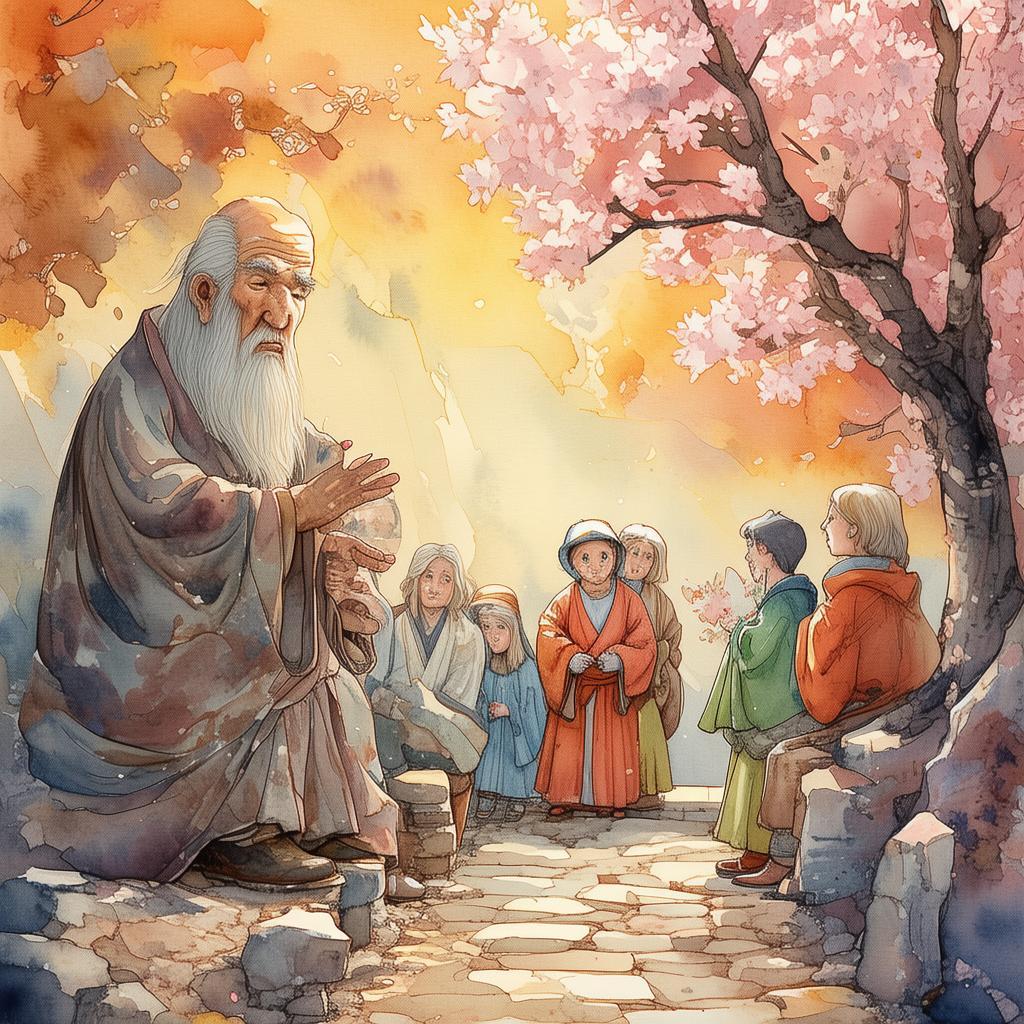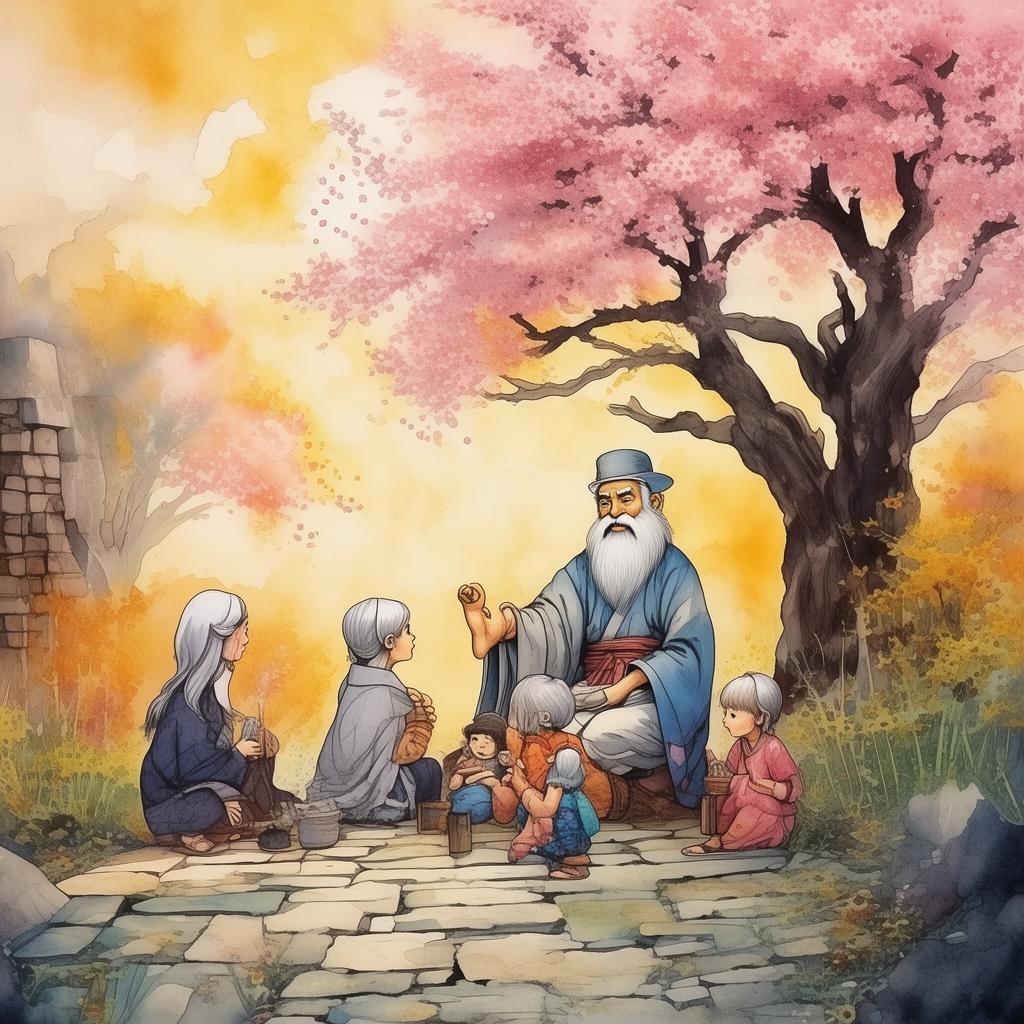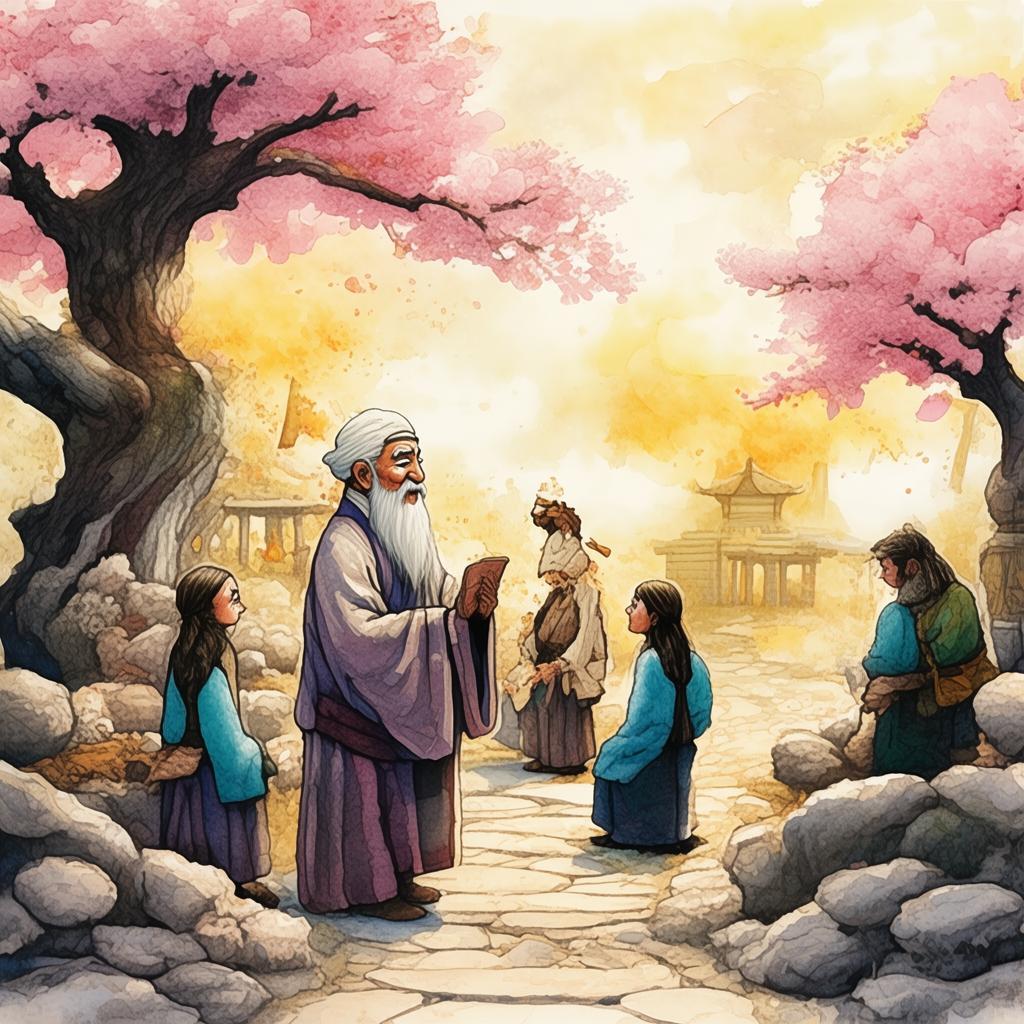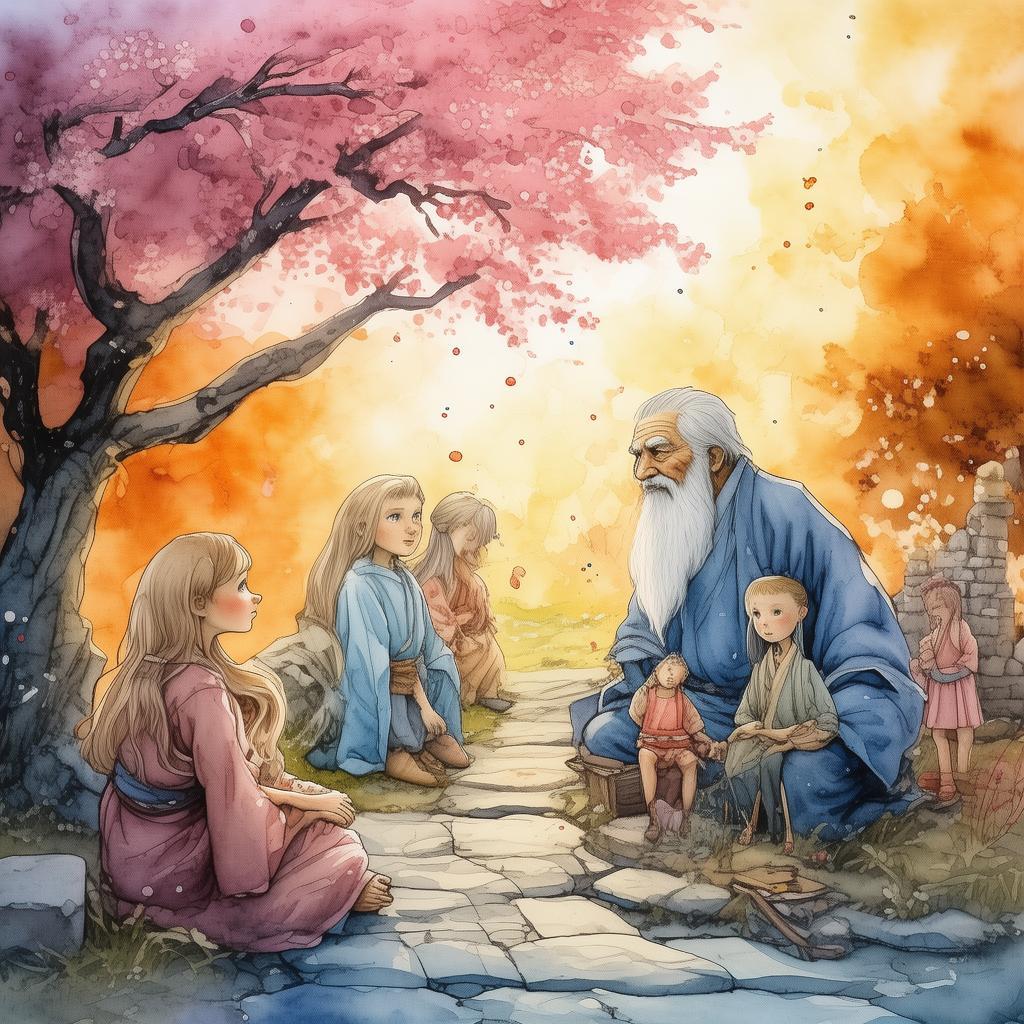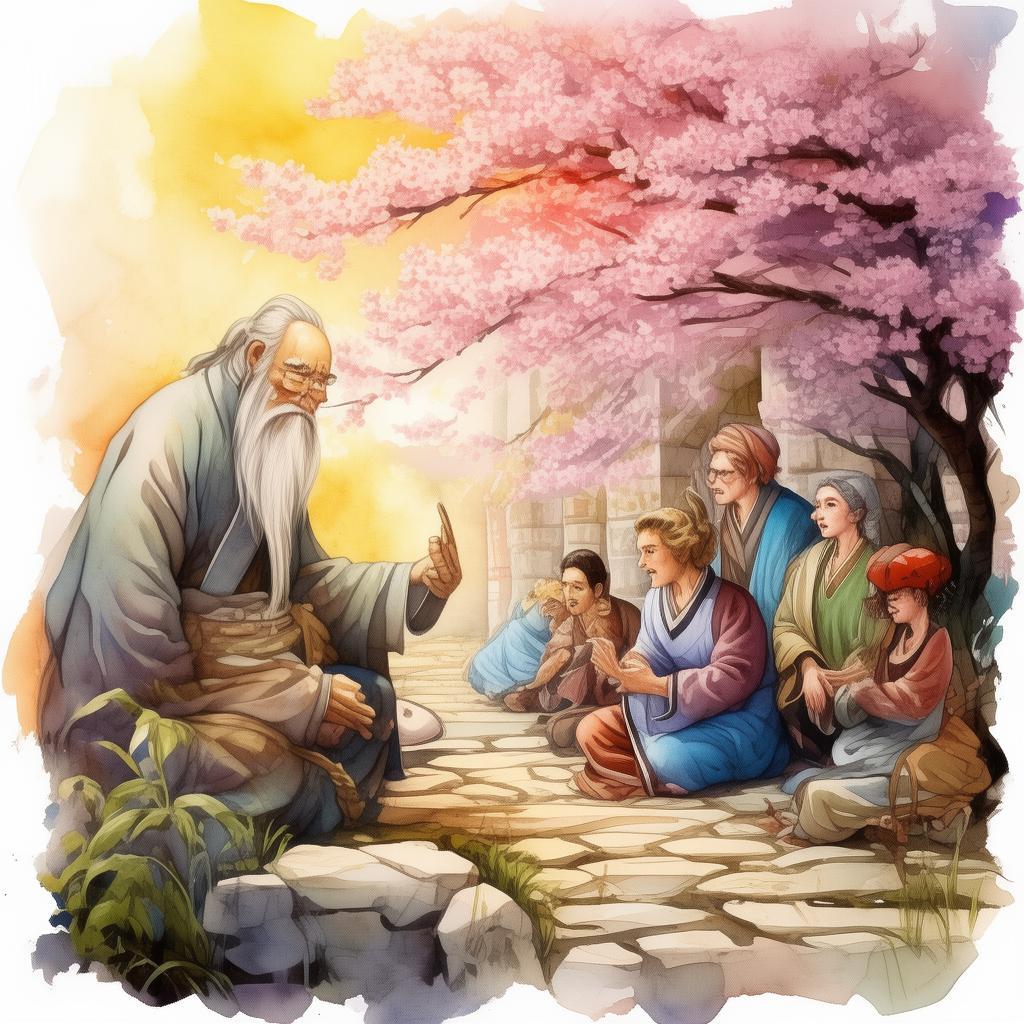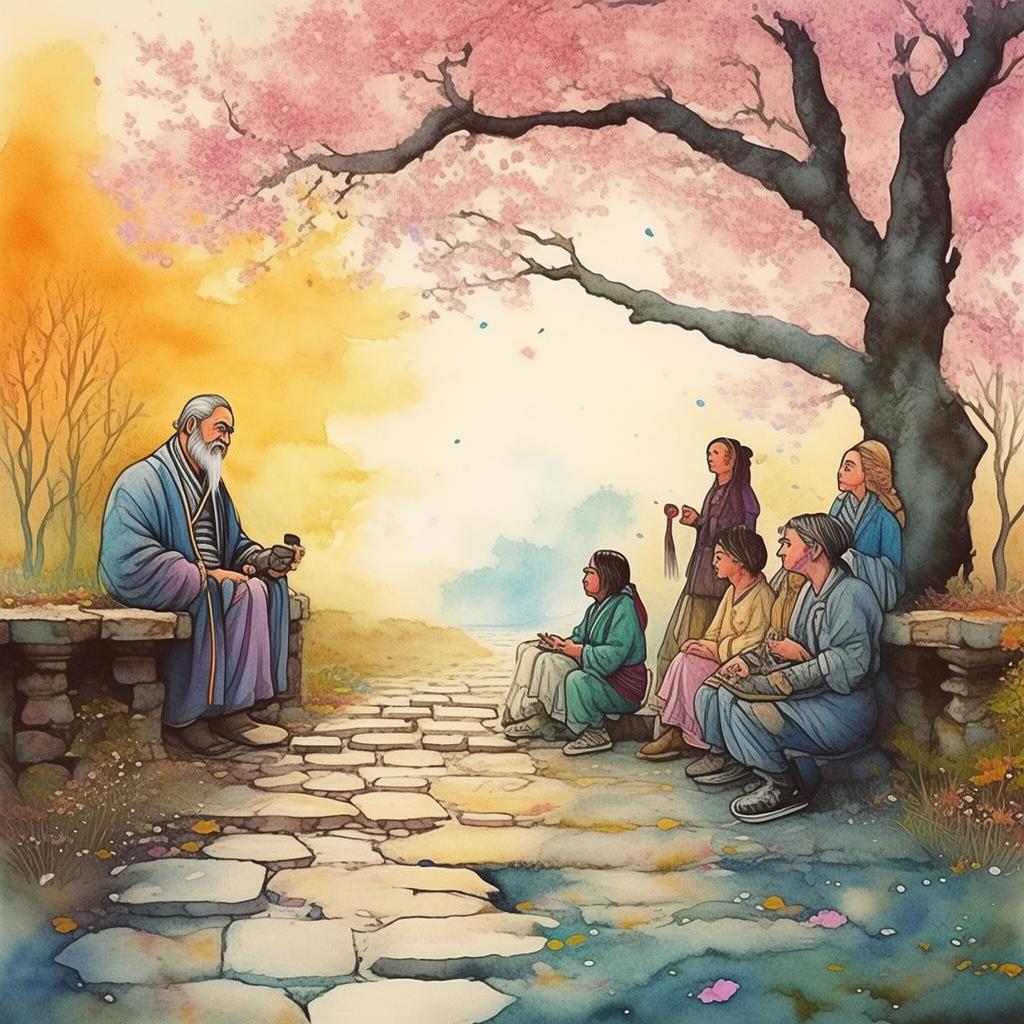The Whimsical Odyssey of the Time-Traveling Poet: A Journey of Verses and Reflections
In the heart of an ancient Chinese village, nestled between rolling hills and a serene river, there lived a poet named Ming. Ming was not just any poet; he was a man who had the rare gift of time-traveling through his verses. With every word he wrote, he could transport himself to different eras, experiencing history firsthand. It was a journey of discovery, one that he cherished above all else.
One day, Ming was inspired to pen a verse that would take him to a distant land, a place of great beauty and mystery. As he read the words aloud, he felt a surge of energy and found himself transported to the bustling streets of ancient Egypt.
The air was thick with the scent of spices, and the sounds of merchants haggling and camels clattering against their bells filled the air. Ming wandered through the bustling bazaar, marveling at the intricate hieroglyphs that adorned the walls of the temples. He spent days in the company of scholars, learning about the secrets of the pyramids and the wisdom of the pharaohs.
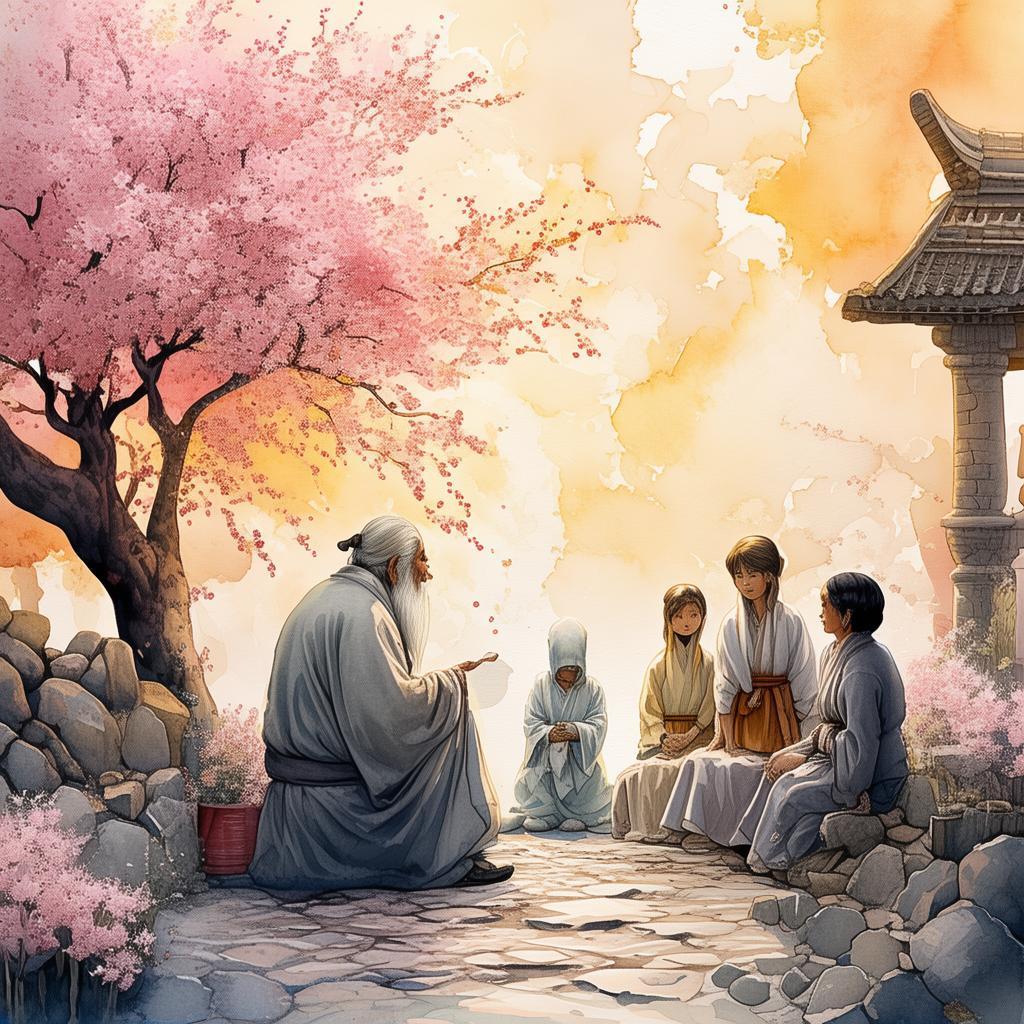
As the days passed, Ming began to realize that his time in Egypt was not just a journey through history, but a reflection of his own life. He saw the ancient Egyptians as a mirror to his own soul, their struggles and triumphs resonating with his own experiences.
One evening, as the sun dipped below the horizon, casting long shadows over the Nile, Ming sat by the river's edge and penned a verse that captured the essence of his time in Egypt. It read:
In sands of time, where dreams intertwine,
I found a mirror, cast in the divine.
Through hieroglyphs, through pyramids high,
My soul's reflection, a timeless cry.
With a heart full of gratitude, Ming returned to his own time, eager to explore other eras. His next verse took him to the Renaissance, where he walked the cobblestone streets of Florence and witnessed the birth of the Renaissance spirit.
The air was filled with the scent of fresh paint and the sound of hammers and chisels as artists sculpted masterpieces. Ming spent hours in the studios of Leonardo da Vinci, learning about the secrets of flight and the beauty of the human form. He marveled at the genius of Michelangelo and the passion of Botticelli.
Once again, Ming found himself reflecting on his own life, seeing the Renaissance as a reflection of his own creativity and curiosity. He wrote another verse:
In art's embrace, where dreams take flight,
I found a canvas, life's endless fight.
Through brushstrokes, through marble's cool embrace,
My soul's reflection, in art's eternal grace.
Ming's journey continued, taking him to the Victorian era, the Roaring Twenties, and the tumultuous years of the 1960s. Each era left its mark on his soul, each verse a reflection of his own growth and evolution.
One day, as he sat by the river once more, Ming realized that his time-traveling had not been about exploring history, but about understanding himself. He had traveled through time to find his own reflection, to understand the essence of his own existence.
With a newfound clarity, Ming penned his final verse:
Through time's vast ocean, through life's wild sea,
I found my soul, in the verses I'd be.
A mirror of eras, a tapestry of dreams,
In every word, my journey's themes.
Ming's journey was over, but his verses would live on, a testament to his own life and the endless possibilities of the human spirit. He had found the true meaning of his time-traveling, and it was not about the past, but about the journey itself, and the reflection it held of his own soul.
✨ Original Statement ✨
All articles published on this website (including but not limited to text, images, videos, and other content) are original or authorized for reposting and are protected by relevant laws. Without the explicit written permission of this website, no individual or organization may copy, modify, repost, or use the content for commercial purposes.
If you need to quote or cooperate, please contact this site for authorization. We reserve the right to pursue legal responsibility for any unauthorized use.
Hereby declared.
